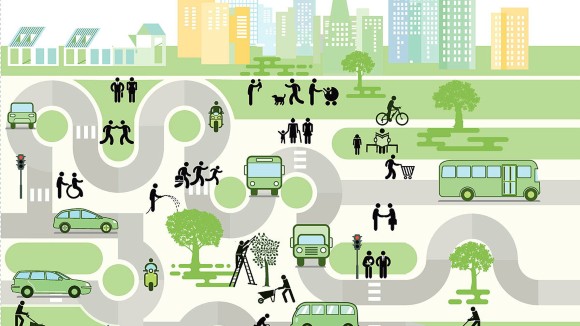Collection
Transport Infrastructure and Services for an Equitable Future
- Submission status
- Open
- Submission deadline
The editorial board of the npj Sustainable Mobility and Transport invites submissions for a special issue focusing on the potentially transformative impacts of transport infrastructure and services on promoting equitable development. We invite contributions on practices from both developed and developing countries.
The development of transport infrastructure and services has been a cornerstone in shaping modern society. Networks of roads, railways, airports, and ports have facilitated movement of people and goods, allowing them to transcend the barriers of geography, which in turn has spurred economic growth by connecting markets, fostering trade, and creating job opportunities. Sharply increased levels of mobility have also enhanced cultural exchange, strengthened cross-border ties, and democratized access to education and healthcare. Moreover, the rapid exchange of ideas and information, facilitated by modern transport, has catalyzed technological innovation.
While undoubtedly providing many benefits, the enormous increase in mobility enabled by continuous expansion of transport infrastructure and services have had vastly uneven results. Some population segments and geographies have highly benefited, while others have seen their mobility and accessibility decreased and their regions emptied out of opportunities. Moreover, the burdens related to infrastructure and transport flows are also shared unevenly, at local and global scales. The awareness of the vast inequities has now become mainstream, but efforts to address, mitigate and gradually erase them are still few and far between. The maintenance of aging infrastructure in combination with a reduced public sector, restricts possibilities for correcting past wrongs and investing in more equitable futures. Yet failing to do so would imply that marginalized communities, in economic, cultural and geographical terms, will continue to carry the brunt of the burdens while receiving limited benefits from (nominally improved) transport infrastructure and services. They are also at highest risk of being impacted by climate change in multiple ways.
Against this background, we invite papers exploring innovative ways to contribute to equitable transport futures, whether led by the public, private or civil society sector. We are open to papers from the Global South and Global North, covering advocacy efforts, new governance approaches, or market-led investment strategies, addressing small-scale local challenges and global issues. We especially welcome contributions that seek to bridge the tension between efforts to improve the sustainability performance of the transport sector and those addressing the vast inequities within, and shaped by, the transport sector.
Consistent with the journal’s aims and scope, we welcome original research contributions, review papers, and perspective articles that address, but are not limited to, the following topics:
- The potential role of passenger and freight transport systems in mitigating inequalities in economic output, job creation, or productivity enhancement, while accounting for planetary boundaries.
- The (missed) potential of transport infrastructure and services to equitable economic growth and balanced regional development in an era of climate crisis.
- The interplay between transport infrastructure and regional (spatial) governance in promoting social equity in metropolitan areas in the Global South and Global North.
- Policy initiatives to design equitable and sustainable urban-rural or urban-suburban transport systems and the evaluation of their performance.
- Cross-regional or cross-national comparisons of transport infrastructure and service development strategies and their effectiveness in fostering equitable access, equitable economic growth, or mitigation of social inequalities.
- The potential of technological transport innovations, such as electric vehicles, autonomous (public) transport, and sharing models, to address inequities in access to job markets and essential services while accounting for environmental and climate impacts.
- Governance models and strategies of ‘just transitions’ towards equitable and sustainable mobility, while seeking to enhance economic and social development.
- New governance strategies in Global South contexts that seek to overcome entrenched transport development trajectories in a drive towards equitable sustainable economic development.
Submission Guidelines:
Authors are invited to submit their original research in accordance with the guidelines provided by the npj-Journal of Sustainable Mobility and Transport. Submissions will undergo a rigorous peer-review process managed by our editorial board.
Papers will be processed on a first-come, first-served basis, ensuring prompt publication once accepted.
For inquiries, please contact: quanyuan@tongji.edu.cn or kmartens@technion.ac.il
We look forward to receiving your insightful contributions to this special issue, aimed at advancing knowledge and discussion on the critical nexus of transport infrastructure and services and equitable development, economic growth, and sustainability.
Please ensure that submissions align with the Aims & Scope of the journal.

Editors
-
Quan Yuan, PhD
Department of Transportation Engineering, College of Transportation Engineering, Tongji University, China
-
Karel Martens, PhD
Faculty of Architecture and Town Planning, Technion - Israel Institute of Technology, Israel
